With everyone around us having holiday parties, and many of us celebrating getting through some major crunch times at work or university, it’s easy to run into situations where we’re surrounded by alcohol. And it’s even easier, when alcohol is such a normalized part of all of our social lives, to forget its dark side.
This “hard pill to swallow” for students who do a lot of social drinking inspired a couple of other Tumblr users to share their qualms with how society understands alcoholism. But while the first two posts in the thread are pretty fatalistic, another user imparted some advice for people who are looking for a way out of drinking habits that are causing problems in their lives.
These people shared some hard truths about alcohol and alcoholism

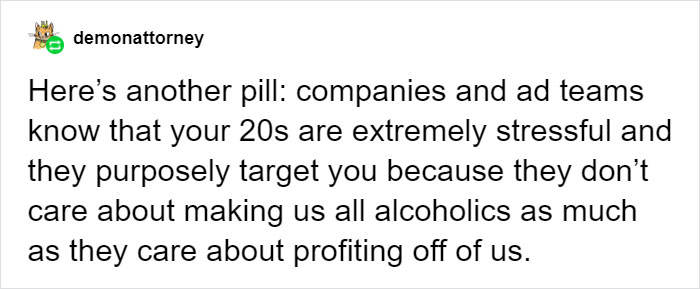
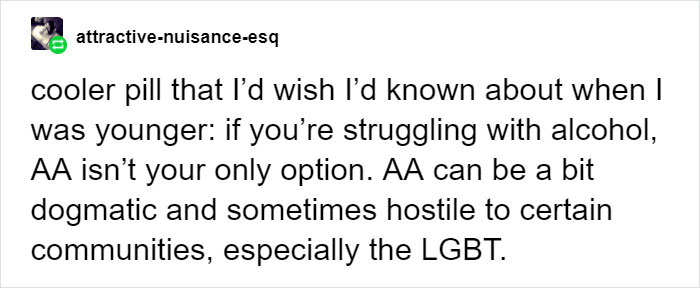

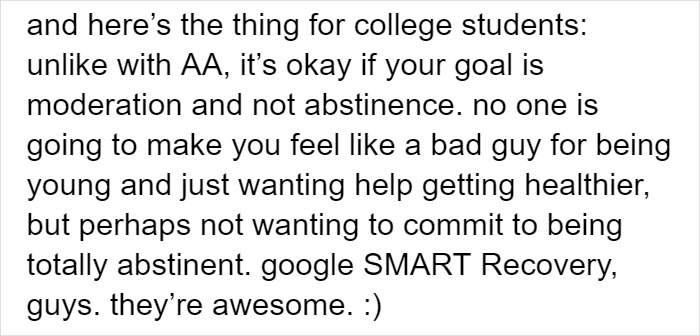
Image credits: attractive-nuisance-esq
As for what constitutes alcoholism and what doesn’t, medical professionals actually make a distinction between binge drinking and alcoholism, but acknowledge that the former can lead to the latter as well as being harmful in its own right. While alcoholics develop an addiction alcohol, often physically, most people who binge drink in social situations don’t drink outside of those situations.
But Harvard Health found that even though only 10% of Americans who reported binge drinking by the numbers were physically dependent on alcohol, many reported alcohol-related problems with their health, employment and relationships even without meeting the criteria for alcoholism.
For people who realize that they need support to overcome their problem with alcohol, Alcoholics Anonymous is usually promoted as a lifeline, but not everyone manages to connect with it. Although AA gives the option for participants to define their understanding of a higher power however they see fit, some people don’t connect with the step of appealing to a spiritual force at all. Other non-religious people feel that even if the language to include them is technically in the manual, their local AA branches seem unwelcoming to them.
One person in the thread shared their experience with SMART recovery, an approach that addresses addictive behavior and unhealthy coping mechanisms of all kinds by examining the motivations behind it and imbuing participants with similar principles to cognitive behavioral therapy. It doesn’t preclude other treatment programs, and some participants say that its flexibility has benefited them in their recovery more than programs with other structures could.
Commenters thanked them, and shared their experiences with recovery

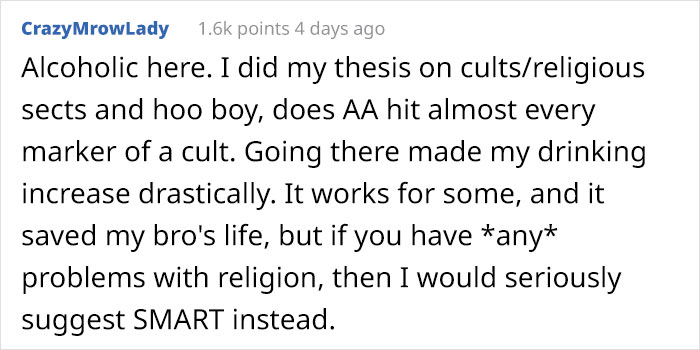



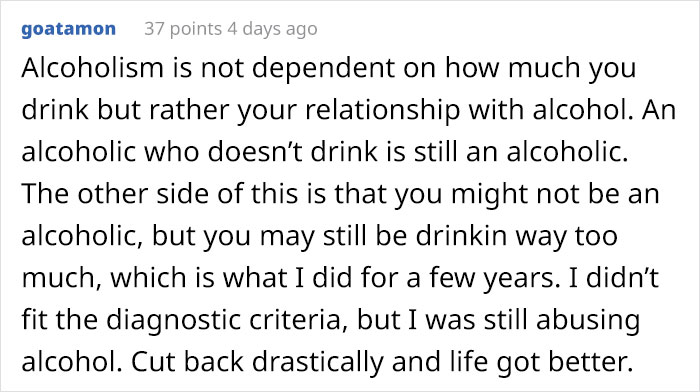















0 Yorumlar